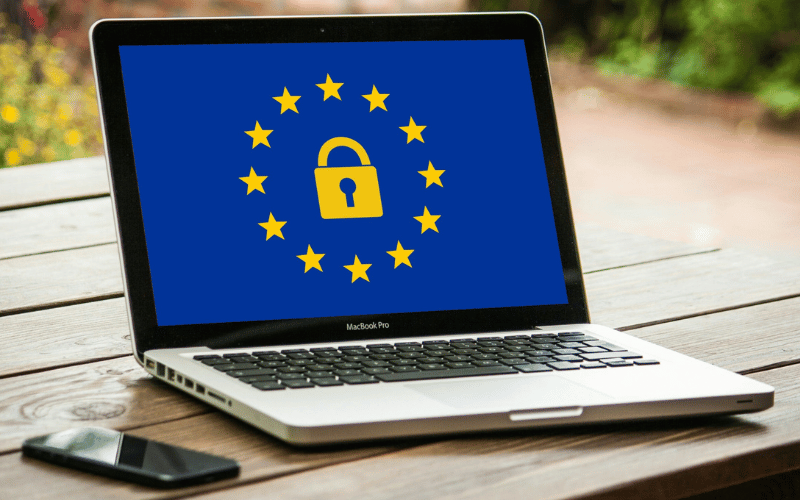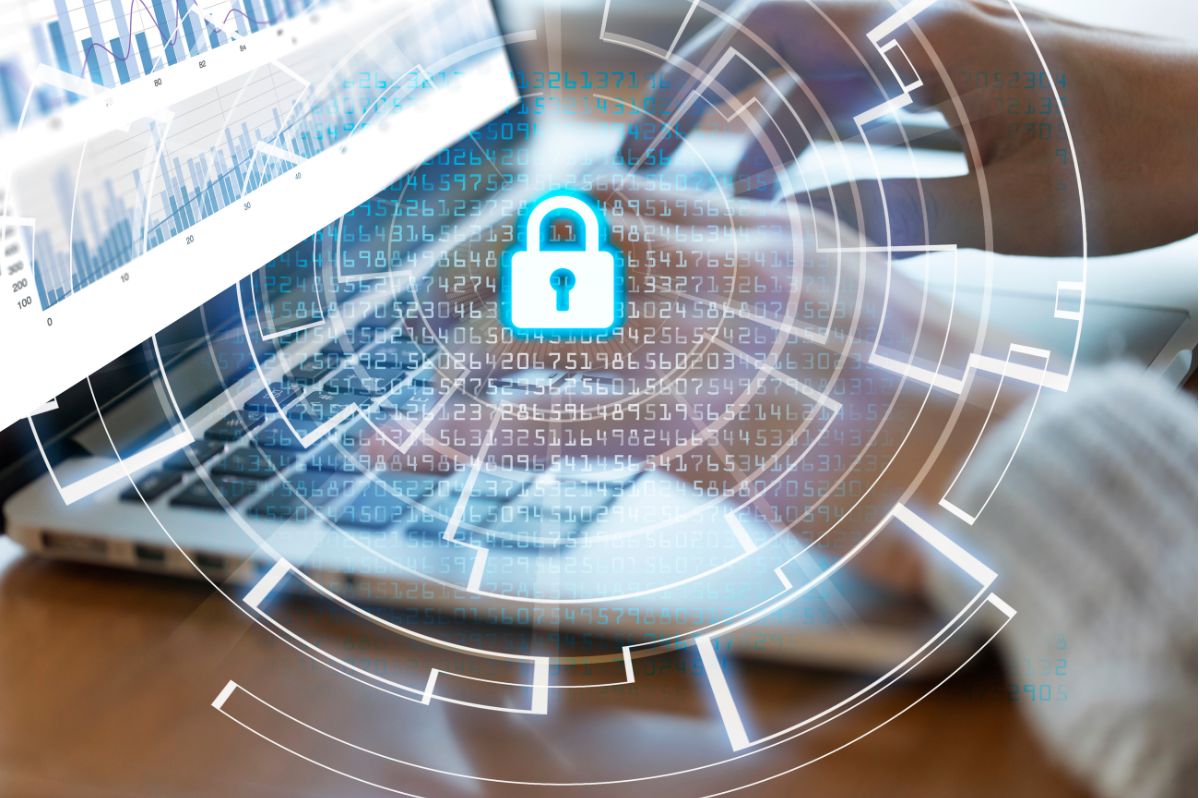Strengthening Corporate Networks: Ensuring GDPR Compliance for Enhanced Cybersecurity

In today’s interconnected world, where digital transformation has become the norm, safeguarding sensitive data and protecting corporate networks against cyber threats has become a critical priority for companies across Europe. In light of the General Data Protection Regulation (GDPR), it is not only a legal requirement but also a strategic imperative for organizations to ensure their corporate networks are GDPR compliant. This article explores the significance of GDPR compliance in fortifying cybersecurity defenses against a range of cyber attacks, including ransomware, malware, phishing, and more.
Examining GDPR Compliance and Cybersecurity
The GDPR, which came into effect in May 2018, has revolutionized data protection and privacy laws in the European Union. It sets stringent guidelines on how organizations collect, process, store, and transfer personal data of EU citizens. Compliance with GDPR not only demonstrates a company’s commitment to protecting individuals’ privacy rights but also provides a strong foundation for strengthening its overall cybersecurity posture.
Cybersecurity plays a crucial role in GDPR compliance as it focuses on protecting personal data from unauthorized access, ensuring data confidentiality, integrity, and availability. Here’s a quick overview of some of the cybersecurity areas that the GDPR covers:
- Data Encryption: Implementing robust data encryption measures is essential to GDPR compliance. Encryption safeguards sensitive information by rendering it unreadable to unauthorized individuals or cybercriminals. By encrypting data both in transit and at rest, organizations can minimize the risk of data breaches and enhance the security of their corporate networks.
- Access Controls: Controlling access to personal data is a fundamental aspect of GDPR compliance. Adopting stringent access controls ensures that only authorized individuals within an organization can access sensitive information. Implementing multi-factor authentication, strong password policies, and user privilege management helps prevent unauthorized access and mitigate the risk of insider threats.
- Data Minimization: GDPR emphasizes the principle of data minimization, encouraging organizations to collect and retain only the personal data necessary for legitimate purposes. By reducing the volume of stored data, companies limit their vulnerability to cyber attacks. Implementing data retention policies and regular data purges not only reduces the attack surface but also improves network performance and efficiency.
- Incident Response and Data Breach Notification: GDPR mandates that organizations have effective incident response plans in place to handle data breaches promptly and effectively. Implementing a robust incident response framework enables organizations to detect, respond to, and mitigate cyber threats efficiently. Timely data breach notification to relevant authorities and affected individuals is crucial for maintaining transparency and trust.
- Employee Training and Awareness: Employees play a vital role in ensuring GDPR compliance and bolstering cybersecurity defenses. Organizations must provide comprehensive training programs to educate employees about the importance of data protection, safe online practices, and identifying and reporting potential security incidents. Regular awareness campaigns help cultivate a security-conscious culture and empower employees to be the first line of defense against cyber threats.
The Benefits of GDPR Compliance for Cybersecurity
By implementing robust cybersecurity measures and aligning them with the GDPR’s requirements, organizations can enhance their data protection practices, reduce the risk of data breaches, and demonstrate compliance with the regulation’s security obligations. Major benefits of GDPR compliance for cybersecurity include:
- Heightened Data Protection: Achieving GDPR compliance enhances data protection practices, ensuring personal information is safeguarded against unauthorized access, manipulation, or theft. By implementing the necessary controls and measures, organizations reduce the likelihood of data breaches and associated reputational damage.
- Mitigation of Cyber Risks: Complying with GDPR requirements compels companies to adopt best practices in cybersecurity. Organizations are better equipped to identify vulnerabilities, proactively implement security measures, and mitigate potential risks such as ransomware, malware, phishing, and other cyber threats.
- Enhanced Customer Trust: GDPR compliance demonstrates a commitment to protecting individuals’ privacy and earning their trust. When customers perceive an organization as responsible and dedicated to data protection, they are more likely to engage in long-term relationships and feel confident in sharing their personal information.
How Does Network Access Control (NAC) Support GDPR Compliance?
Network Access Control (NAC) plays a vital role in supporting GDPR compliance by helping organizations enforce access controls, ensure data privacy, and enhance network security. Here’s how NAC contributes to GDPR compliance:
- Enforcing Access Controls: NAC solutions enable organizations to implement granular access controls and authentication mechanisms for users connecting to the corporate network. By enforcing strong authentication, such as multi-factor authentication, NAC ensures that only authorized individuals can access sensitive data. This aligns with the GDPR’s principle of data protection by design and default, ensuring that personal data is accessible only to those with legitimate rights.
- Identity and Device Authentication: NAC solutions verify the identity and security posture of devices seeking access to the corporate network. They authenticate and authorize devices based on predefined policies and security standards. This helps prevent unauthorized devices from connecting to the network and accessing sensitive data, thus reducing the risk of data breaches and enhancing GDPR compliance.
- Monitoring and Auditing User Activity: NAC solutions provide visibility into user activities on the network. They monitor user behavior, track network access events, and generate audit logs. This audit trail helps organizations demonstrate compliance with GDPR requirements, such as maintaining records of data processing activities and implementing security measures. In the event of a data breach or security incident, NAC logs can aid in investigating the incident and identifying the scope of potential data exposure.
- Segmentation and Data Isolation: NAC allows organizations to segment their networks based on user roles, departments, or sensitivity of data. This segmentation helps isolate personal data, restricting access to only authorized individuals or specific network segments. By implementing network segmentation, NAC reduces the potential impact of a data breach, limits lateral movement of threats within the network, and strengthens data protection measures required by the GDPR.
- Compliance Monitoring and Remediation: NAC solutions provide continuous monitoring of devices and users on the network, ensuring ongoing compliance with security policies and GDPR requirements. If a device or user violates established policies or exhibits suspicious behavior, NAC can trigger automated responses, such as isolating the device or blocking access, to mitigate potential risks and maintain compliance.
- Incident Response and Data Breach Management: In the event of a data breach or security incident, NAC plays a crucial role in incident response and data breach management. NAC solutions can assist in identifying the source of the breach, isolating affected devices or users, and taking immediate remedial actions. This supports GDPR compliance by enabling organizations to promptly detect, respond to, and report data breaches as required by the regulation.
In Conclusion
NAC helps organizations enforce access controls, authenticate users and devices, monitor network activity, segment data, and respond to security incidents. By implementing NAC solutions, companies can enhance their GDPR compliance efforts, strengthen data protection practices, and reduce the risk of data breaches and associated regulatory penalties.
Achieving GDPR compliance not only fulfills legal obligations but also provides European companies with a robust framework to protect their corporate networks against a variety of cyber threats. By implementing stringent data protection measures, such as encryption, access controls, data minimization.
Try Portnox Cloud for Free Today
Gain access to all of Portnox's powerful zero trust access control free capabilities for 30 days!






